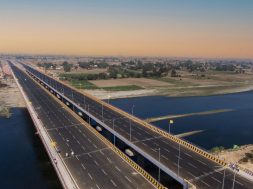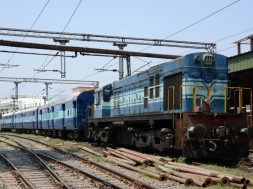Construction equipment, materials saw reduced demand in 2012
Construction equipment, materials saw reduced demand in 2012
“This is year when we felt more the real impact of the delays in policy decisions and macro economic factors,” says Sailendra Behera, Joint Managing Director, RSB Transmissions
Delay in land acquisition, government clearances and market uncertainties affected many large projects in 2011. This, in turn, reduced the demand for construction equipment and other construction materials in 2012. The high bank lending rates also had an adverse impact on the purchasing decision of major EPC contractors. Sailendra Behera, Joint Managing Director, RSB Transmissions (I) Ltd., discusses the good, bad, ugly side of the infrastructure sector that we have left behind.
The year behindThis is year when we felt more the real impact of the delays in policy decisions and macro economic factors such as high bank interest rates — even though these were present in 2011 and before. The high bank interest rates affected the real estate business in a big way and the demand dropped significantly in 2012. However, the positive sentiments — brought by some bold government decisions along with announcements of some ambitious projects — has resulted in the demand, which is somewhat picking up. We feel that the sector would recover in the rest of the year, and in all likelihood, FY13 will close at the same level as that of FY12.
Opportunity utilisedA down trend is zooming in because of the current economic scenario. We have used this period as an opportunity for process improvements and new product developments for our existing as well as new customers. Our multicustomer and multiproduct business has really helped us cope up with the trying situation and manage our performance to some extent.
RSB Transmissions with new ordersWe have taken development of several new products, and we can talk about it only when these are translated into firm business orders. Considering the downturn in business, our order book is healthy, though not spectacular.The tough times, industry left behindThe industry has faced several major challenges, including: • Uncertainties due to delays in government approvals and clearances: This has dropped the demand for capital equipment due to capex deferrals. There is also delay in execution of existing orders because of land acquisition, obtaining environmental and other clearances which result in large cost overrun. This, in turn, has pressurized the operating margins of the major players in the industry, besides having a cascading effect on the whole economy. This continues to plague the major infra projects in power, airports, seaports, roadways, and real estate and continues as the major challenge.• High rate of interest: This industry is very capital intensive as majority is asset-owned businesses, and the debt levels are normally high. The high rate of interest dents the net profit margins and affects the business viability. The impact becomes rather significant when the projects get delayed. Thus the demands for capital equipment get affected. The sectoral growth is likely to continue to remain subdued unless the bank interest rates get revision.• Lack of skilled manpower: Lack of trained manpower to handle large construction and infra projects has resulted in execution issues and delay in the projects which directly result in erosion of profit margins. • Lack of clear guidelines in tendering process: The absence of clear procedures to assign proper weight age to advanced technology and following a policy of selection based on “lowest price” bid is impacting the industry. This environment is not conducive for the industry to spend money on R&D to bring new, efficient technology.
Also, the lack of monitoring mechanism with the nodal agencies results in lack of accountability of the L1 bidder and affects the performance of the industry.
18
Cookie Consent
We use cookies to personalize your experience. By continuing to visit this website you agree to our Terms & Conditions, Privacy Policy and Cookie Policy.









